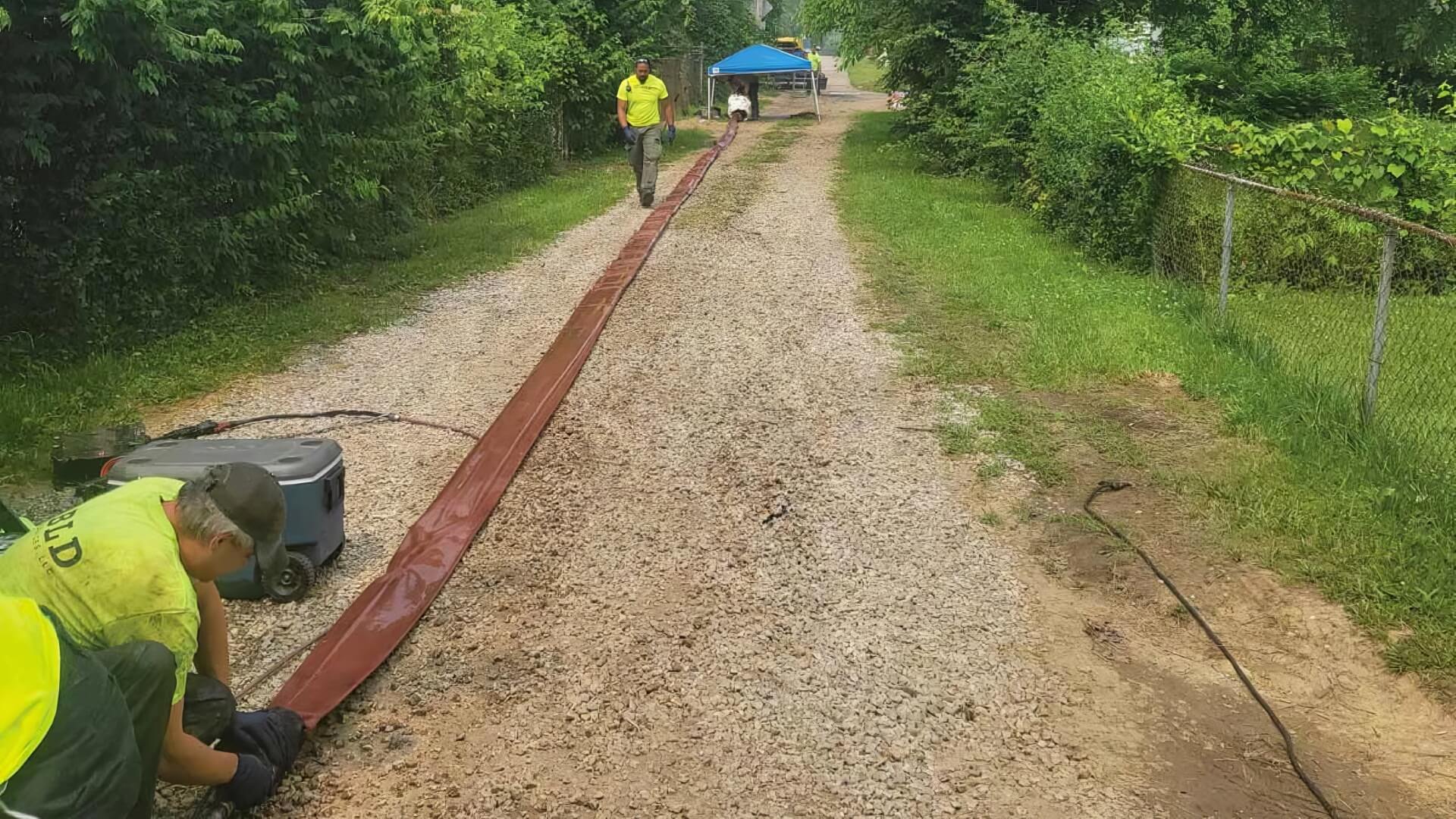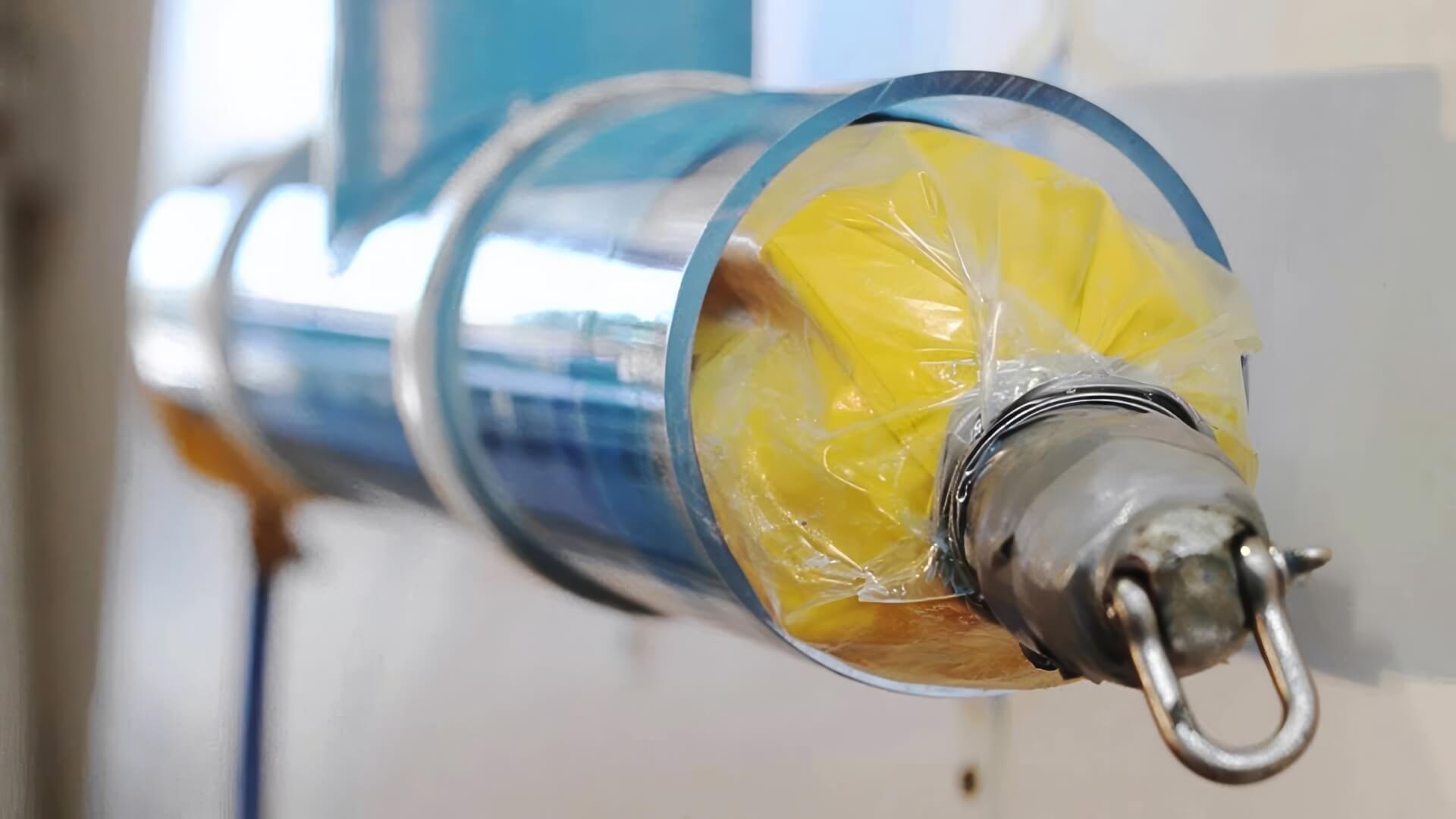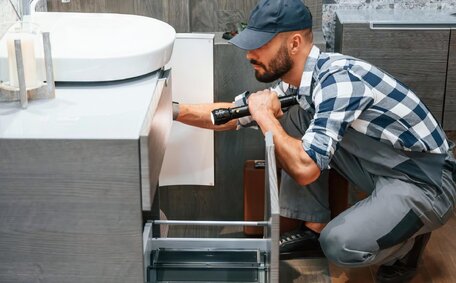Proper kitchen habits are crucial for maintaining clean and functional drains, thereby mitigating the harmful effects of blocked drains.
At Padstow Plumbing, we recognise that substances washed down the sink are an everyday part of cooking and home drain maintenance. Certain kitchen practices can have detrimental effects on drains, resulting in blocked pipes, unpleasant smells, plumbing complications, and health risks. In this article, we reveal how altering this habit can provide health benefits, as pouring cooking oils, fats, and food waste down the drain can damage your plumbing and the environment.
We’ll explore the risks associated with improper disposal, such as pouring cooking oil down the drain, and offer solutions to mitigate these impacts. Read on to learn how Padstow Plumbing can improve your drain-friendly habits that benefit your home and the planet.
Maintaining your kitchen sink drain doesn’t equate to a loss akin to skipping your daily vitamin intake. Small preventative steps rich in practicality, dedicated to ensure your kitchen drainage runs smoothly, much like ensuring your daily vitamin C intake, will keep it functioning well for years to come. We aim to raise awareness on this important but often overlooked facet of household maintenance.
Oils and Fats Clog Drains
Cooking oils and grease can easily lead to clogged drains when washed down kitchen sinks. Substances like vegetable oil, butter, other dairy products, and grease may seem harmless when you clean your dishes and pour them down the drain, but they can congeal, cool, and stick to the insides of pipes.
Unlike liquid waste that flows freely, oils and fats have a thicker, viscous consistency. Once in the sink, these substances adhere to drain interiors, obstruct water flow and build-up as more oil is added. This builds up a coating within your drainage system that traps food particles and compromises the water supply.
As build-up occurs, drains become partially or fully blocked by the oily, greasy layer adhering to pipe walls, compromising the flow and cleanliness of water to surface bodies. Your water can back up into your fixtures, struggling to flow through drains most of the time affecting everything from kitchen sinks to bathtubs. Left unchecked, the blockage can wreak havoc on the sewer line and cause overflows, leading to the release of contaminated water into the environment.
To reduce grease build-up in the sink, it is best to collect and dispose of used cooking grease correctly.
Pouring large amounts down your sink increases the risk of damage and costly repairs from drainage issues, with food waste exacerbating this concern. Areas where even smaller quantities of cooking oil are poured down the sink can still accumulate debris, so it’s important to limit this practice. With some care, your drains should run clear for years rather than becoming congested and problematic.
Food Scraps Cause Drain Blockages
Commonly disposed items such as food scraps and used cooking oil can contribute to drain blockages. Substances like coffee grounds, eggshells, rice, and pasta seem harmless, but waste can cause blocked drains when flushed into pipes.
Small food remnants and foreign objects commonly cause clogs by getting caught in drainage openings and joints, and gather as more waste is added. Coffee grounds and eggshells are particularly problematic as they are dense and granular, easily entering your drainage system. On the other hand, pasta, rice, and other starchy foods also expand when wet and can swell inside pipes.
Some slotted drain systems incorporate grate covers, functioning like strainers or filters, to intercept food scraps before they go down the sink. Simply throw away scraps from the strainer straight into the bin, ensuring the drain pipe remains unobstructed. Avoid washing large amounts of any food waste into drain pipes.
Though they seem harmless, rice and pasta can be some of the worst offenders for causing blockages. When washed down the drain, they absorb a significant amount of water and expand, potentially jamming pipes. When cleaning up, prioritise allowing starchy foods to be scraped from plates into bins first.
With some care around disposal of coffee grinds, eggshells, rice, pasta and other kitchen staples, your drains should operate smoothly for a long time before needing service.
Health Risks of Clogged Drains
Blocked drains not only waste time but also pose health risks by compromising food safety, necessitating frequent handwashing. Stagnant water can make a breeding ground where bacteria cause illness through contact or improper food handling. Drain back-ups can also enable pests like cockroaches, flies, and mosquitoes to proliferate, posing a threat to your health and potentially spreading diseases.
Attempting to unblock floor drains with harsh chemical cleaners presents its own health dangers. Corrosive drain cleaners contain sulphuric acid, sodium hydroxide, heavy metals, and other caustic agents linked to skin burns, eye damage, and respiratory irritation if mishandled.
Blocked drains emit bad smells as a result of sewer gas build-up, creating an unfavourable home atmosphere. For your peace of mind and health, ensure to call us – the professional plumbers at Padstow Plumbing, at the first hint of slow or blocked drains. Avoid DIY chemical drain cleaners and dont allow the issue to linger.
Environmental Impact of Drain Misuse
Washing these substances into your drainage system leads to waterway pollution and interrupts sewage treatment procedures.
Oils and fats, along with water and other substances, are more difficult for water treatment plants to filter out, hence often making their way into rivers, lakes, and oceans. Here in Padstow, grease buildup in pipes can lead to water pollution in your local Parramatta River, harming water quality and aquatic life.
Solid foods, leaves, and other matter can clog channels within the drain, hindering sewage filtration efforts. Scraps such food as rice and eggshells get embedded in sewage screens, limiting treatment capacity. Unchecked organic waste with high nutrient content can fuel algal blooms, depleting oxygen levels and suffocating marine life.
Sewage overflows triggered by blocked drains may directly discharge untreated human waste into the environment or your septic tank. This waste contains bacteria, viruses, and nutrients that decrease water quality and endanger public health.
By following proper kitchen waste disposal habits, like mindful disposal of your food remnants, we can all minimise the ecological impact on our natural resources from our food production and cooking activities. Individual efforts in responsible cooking and disposal practices can significantly lessen environmental harm, collectively safeguarding our waterways for the future.
Preventative Measures for Healthy Drains
- A mixture of baking soda vinegar, can also help break up light blockages in your drains.
- Clear loose debris from drains with a wire hanger or zip-it tool to prevent blockages after cleaning your kitchen items.
By maintaining regular cleaning and following these most effective preventative steps, Padstow Plumbing can help customers maintain clear, clog-free drains that operate smoothly for years. Contact us today to discuss long-term drain care or tackle any existing kitchen plumbing issues.
Collect used cooking oil in a sealable container and dispose of the large amount in the garbage once cooled and solidified.Tips for Unclogging Drains
Dealing with a clogged drain can be frustrating, but there are several methods you can try before calling a professional:
- Pour half a cup of baking soda down the drain followed by half a cup of white vinegar. Cover and let sit for 5-10 minutes. Then pour hot a kettle of boiling water down drain to get rid of grease down the line and food buildup.
- Utilise a drain snake or auger to manually dislodge soap residue, grease, and deep-seated debris within the pipes. Slowly turn the handle as you push the snake deeper into the drain.
- Connect a wet/dry shop vacuum hose to the drain to use suction for loosening and extracting the clog.
- Combine equal parts salt, baking soda, and cream of tartar. Deposit into the drain, wait 30 minutes, then flush with hot water.
- Utilise a straightened wire coat hanger cautiously and avoid overreliance on harsh chemical cleaners that can harm pipes. In cases of persistent or major clogs, enlist Padstow Plumbing to assess and thoroughly cleanse the drains.
When to Call a Professional Plumber
Certain plumbing issues are best left to the professionals. If you’re experiencing any of the following, it’s time to call a licenced plumber for assistance:
- Foul sewage odours coming from drains or appliances
- Drains are fully blocked or water is draining at a reduced pace
- Gurgling sounds coming from drains
- Leaking pipes or persistent dampness under sinks
- Low or fluctuating water pressure
- Strange noises like clanging or hammering coming from pipes
- Sinks, tubs or toilets overflowing
- Presence of sewer roaches or other vermin
DIY efforts to unclog stubborn or repeated blockages can exacerbate the situation. Our team at Padstow Plumbing have the requisite tools and equipment and expertise to correctly diagnose issues and clear even the toughest clogs without damaging your pipes. Our qualified technicians can also detect leaks, corrosion, and other problems before they cause costly damages.
Don’t wait until you have a plumbing emergency; reach us directly using our email address for prompt service. Stay proactive by calling Padstow Plumbing at 1300 349 338 or emailing jobs@padstowplumbingservices.com.au whenever you notice signs of trouble. We’re available 24/7 to assess and repair any plumbing issues throughout Padstow.






